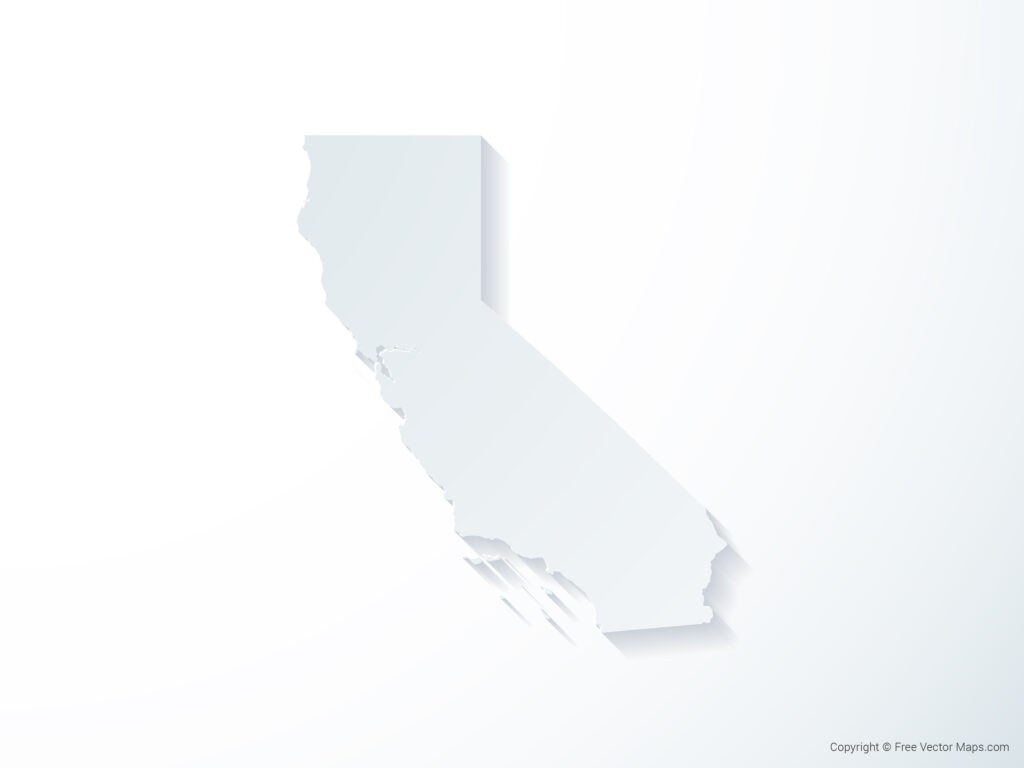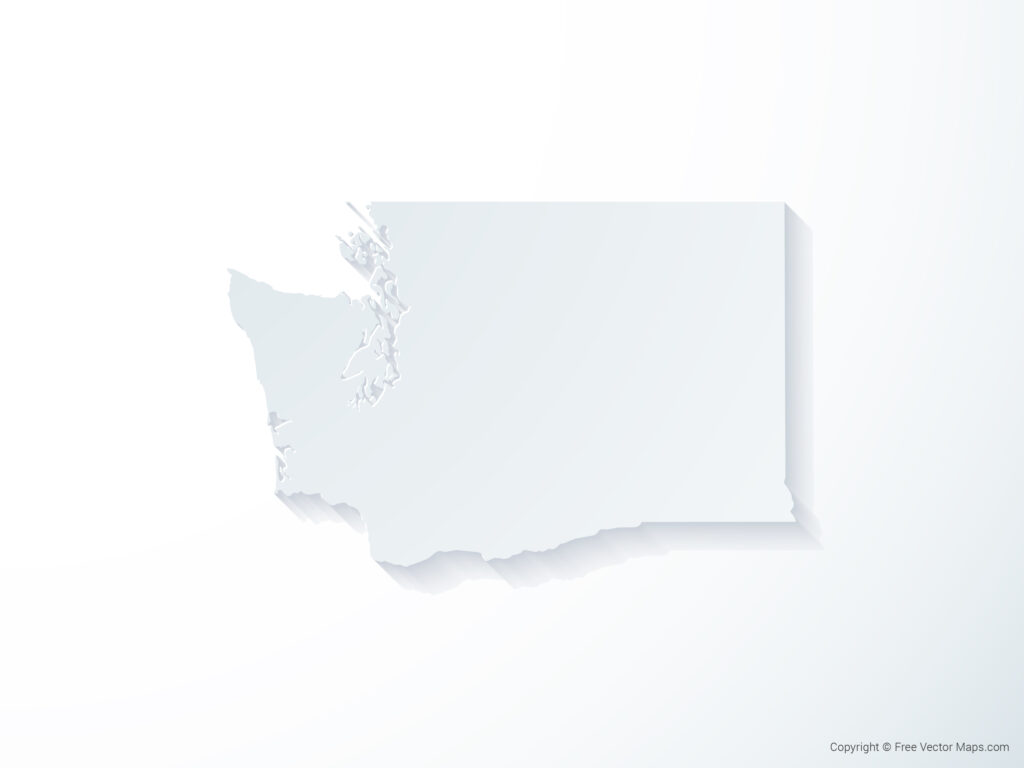Western Region
Click on each state’s name to navigate to related summaries.
ARIZONA
MESA, AZ
- Recording of Law Enforcement Activity
- Mesa PD has orders to allow reporters to record, as long as they are not trespassing on private property or interfering with investigations. “Do not restrict photographers from taking pictures at the scene of an incident.” Mesa Police Department Policy Manual, 3.3.60, Section 7(a). However, Governor Doug Ducey signed H.B. 2319 into law which prohibits consciously filming police officers within a distance of 8 feet. “If the person making the video recording does not have the permission of a law enforcement officer.” Additionally, this bill specifies that it does “not establish a right or authorize any person to make a video recording of law enforcement.”
- Media Relations
- Mesa PD expects officers to uphold positive relationships with the media. “Members shall conduct contacts with the news media in a courteous, professional manner.” Mesa Police Department Policy Manual, 3.3.60, Section 3(a). The policies also specify when an officer should contact a Media Relations Officer, and provides for the creation of a media staging area at crime scenes.
- Arrest Avoidance Procedures
- Issue not addressed in reviewed policies.
- Dispersal Order Exemptions
- Issue not addressed in reviewed policies.
- Curfew Exemptions
- There is no official policy regarding curfew exemptions for the media in the reviewed policies. But credentialed members of the media have been exempted from some state imposed curfews. On May 31st 2020, Governor Doug Ducey issued a curfew order under the Rioting-Imposition of Curfew that specifically exempted “credentialed members of the media.”
- Equipment Search/Seizure Protections
- Issue not addressed in reviewed policies
- Right to Carry Media Equipment
- Officers do not have the right to tell journalists to turn off their media equipment. “Do not tell media personnel/photographers to turn their cameras off.” Mesa Police Department Policy Manual, 3.3.60, Section 7 (a)(3).
PHOENIX, AZ
- Recording of Law Enforcement Activity
- Phoenix Police Department’s Operations Order 5.2 specifies that media should be allowed to record when on public property that is not closed, or private property with consent of the owner. However, Governor Doug Ducey signed H.B. 2319 into law which prohibits consciously filming police officers within a distance of 8 feet. “If the person making the video recording does not have the permission of a law enforcement officer.” Additionally, this bill specifies that it does “not establish a right or authorize any person to make a video recording of law enforcement.”
- Media Relations
- Phoenix polices provide guidelines for media releases and media access to scenes of disasters, criminal investigations, emergencies, and other law enforcement activities. Phoenix Police Department’s Operations Order 5.2 provides guidelines for contact between employees and the media, and for the release information. This policy also creates a media relations unit. This policy also provides information and procedures for how officers should handle requests for information in specific cases, including cases involving photography and death investigations. The Department does not issue media credentials.
- Arrest Avoidance Procedures
- Issue not addressed in reviewed policies.
- Dispersal Order Exemptions
- A.R.S. 13-3804 does not explicitly exempt journalists from dispersal order violations. But the Phoenix Police department has revoked specific guidelines saying journalists would not be exempt from dispersal order violations. In May, 2020 Phoenix Police issued guidelines that said working journalists would be subject to arrest for failure to leave a scene after a dispersal order. The police chief later apologized for the statement, but state law A.R.S 13-3804 still does not provide journalists with an exemption by saying “any number of persons.” are subject to dispersal orders. (“Police chief apologizes, says working journalists at public gathering won’t be subject to arrest”, AZ Central, May 29, 2020.)
- Curfew Exemptions
- There is no official policy regarding curfew exemptions for the media in Phoenix’s official Operations Orders. Credentialed members of the media have been exempted from some state imposed curfews. On May 31st 2020, Governor Doug Ducey issued a curfew order under the Rioting-Imposition of Curfew that specifically exempted “credentialed members of the media.”
- Equipment Search/Seizure Protections
- Issue not addressed in reviewed policies
- Right to Carry Media Equipment
- Issue not addressed in reviewed policies; but Operations Order 5.2 states that the police department does not issue credentials (see media relations).
TUCSON, AZ
- Recording of Law Enforcement Activity
- Tuscon police policies identify a broad right to record police activity when complying with the law. Section 2218 of the Tucson Police Department’s General Orders states that anyone has the First Amendment right to record the police in the discharge of their duties as long as that person has the right to be present in that area “including an individual’s home or business, or other private property where the person has a right to be present.” Press credentials are not required. An individual must not disrupt the officer’s duties or hinder a lawful arrest to enjoy this right. An officer cannot request for an individual to stop recording even if they must move them. However, Governor Doug Ducey signed H.B. 2319 into law which prohibits consciously filming police officers within a distance of 8 feet. “If the person making the video recording does not have the permission of a law enforcement officer.” Additionally, this bill specifies that it does “not establish a right or authorize any person to make a video recording of law enforcement.”
- Media Relations
- Section 3060 of the Tucson Police Department’s general orders addresses “Media and Public Information Policies,” providing for the creation of an office of media relations and public information officers. This policy also addresses crime scene access. Additionally, the police department issues credentials for members of the media and has a framework for the release of information and exceptions to that policy.
- Arrest Avoidance Procedures
- Issue not addressed in reviewed policies.
- Dispersal Order Exemptions
- Tucson policy states that officers must provide a viewing area if a dispersal order is given. Tucson Police Department’s General Orders Section 2534.9 “Reporting by Community Members” provides that “[m]embers of the public have a constitutional right, provided they are not interfering with police operations, to report on newsworthy events. To the extent reasonably possible, the department will accommodate reporting on events by providing a “viewing area” (outside the area of the dispersal order).” Additionally, the policy states that law enforcement must find an exit route for all those dispersing, including those engaging in reporting activity.
- Curfew Exemptions
- There is no official policy regarding curfew exemptions for the media in Phoenix’s official Operations Orders. Credentialed members of the media have been exempted from some state imposed curfews. On May 31st 2020, Governor Doug Ducey issued a curfew order under the Rioting-Imposition of Curfew that specifically exempted “credentialed members of the media.”
- Equipment Search/Seizure Protections
- Tucson Police Department’s General Orders Section 2218 specifies that “[a]ny warrantless seizure of a recording device or media shall be temporary where needed to preserve evidence until a warrant can be obtained for any continued seizure or subsequent search.” This ensures that a warrant must be obtained for the prolonged seizure of media equipment.
- Right to Carry Media Equipment
- Issue not addressed in reviewed policies.
CALIFORNIA
FRESNO, CA
There are no written policies for this jurisdiction that fall under any of the Policing Project’s seven categories.
UCI contacted Fresno Police Department on September 25, 2020 via email and received no response. UCI then called Fresno PD’s internal affairs office and no one answered. UCI then called the chief’s office but no one answered. UCI never received an email or phone call from Fresno and their website does not contain a policy.
LONG BEACH, CA
There are no written policies for this jurisdiction that fall under any of the Policing Project’s seven categories.
UCI contacted LBPD on September 25, 2020 via email and agency responded by email to say: “Any member of the public or the media has the legal right to take photos or video of a police officer or any police employee who is performing their duties in a public place, so we would not have a department policy on that.”
LOS ANGELES, CA (LAPD)
- Recording of Law Enforcement Activity
- The Los Angeles Police Department says the following is not an official policy, but just “guidance.” The LAPD’s tip states that “[e]veryone has the right to film and photograph police officers in public. Whether you are using your camera to record a police interaction or you are a police officer trying to do your job safely and effectively, you should be polite, respectful, and calm.”
- Media Relations
- A memorandum from the LAPD to all department personnel states that “[m]edia representatives have a legitimate interest in providing the public with information on” protests and demonstrations occurring in Los Angeles. “[T]he Department WILL recognize individuals who self-identify as media representatives and will NOT require specific media credentials.”
- Arrest Avoidance Procedures
- Issue not addressed in reviewed policies.
- Dispersal Order Exemptions
- The memorandum further states that “[w]hen an unlawful assembly has been declared and a dispersal order has been given the Incident Commander (IC) and PIO representative will establish a safe working area for members of the media. Officers are reminded that media representatives may be allowed behind skirmish lines but may not move back and forth through police lines or otherwise interfere with police actions.”
- Curfew Exemptions
- Issue not addressed in reviewed policies.
- Equipment Search/Seizure Protections
- Issue not addressed in reviewed policies.
- Right to Carry Media Equipment
- Issue not addressed in reviewed policies.
LOS ANGELES COUNTY, CA (LASD)
- Recording of Law Enforcement Activity
- According to the Los Angeles County Sheriff’s Department Manual of Policy and Procedures, “[m]embers of the public, including the press, have a First Amendment right to observe, take photographs, and record video or audio in any public place where they are lawfully present. Photography and recording of video or audio are common activities and are neither crimes nor indications of criminal activity in and of themselves. Neither photography nor the recording of video or audio, standing alone, can from the basis for a detention, arrest, or warrantless search.” (3-01/080.16 – Photography, Audio, and Videotaping by the Public and the Press)
- Media Relations
- The Manual of Policy and Procedures states that [e]mployees shall facilitate the work of accredited members of the press by providing them with accurate information in accordance with Department regulations.” The policy further states that in press releases, the use of terms that unfairly reflects upon a particular race or culture are to be avoided. Additionally, prior to a press conference, a summary including the “pertinent logistics and general scope and synopsis of the press conference shall be forwarded to the Senior media Advisor without delay.” (3-01/080.15 – Press Relations)
- Arrest Avoidance Procedures
- Issue not addressed in reviewed policies.
- Dispersal Order Exemptions
- Issue not addressed in reviewed policies.
- Curfew Exemptions
- Issue not addressed in reviewed policies.
- Equipment Search/Seizure Protections
- The Manual of Policy and Procedures states that “[e]xcept under limited circumstances, Department personnel are prohibited from searching or seizing photographs, video or audio recordings, cameras, recording equipment, or telephones without a warrant.” In the event that “the film, tape, or storage source is believed to contain evidence relevant to a deputy-involved shooting, in-custody death, or use of force incident, deputies shall immediately notify a field supervisor who shall seek voluntary consent to view or obtain the film, tape, or storage source from the individual having possession.” If the field supervisor is not given voluntary consent, the Manual lists out specific exceptions that would allow seizure. For example, if the recording or photo is believed to contain evidence of a homicide and exigent circumstances exist that suggest the evidence will be lost if a seizure does not occur. (5-04/020.30 – Seizure of Photographic, Video, or Audio Evidence From a Private Citizen or Member of the Press)
- Right to Carry Media Equipment
- Issue not addressed in reviewed policies.
OAKLAND, CA
- Recording of Law Enforcement Activity
- Section XII.A of the Oakland Police Department Crowd Control and Crowd Management Policy states that “[t]he media have a right to cover demonstrations, including the right to record the event on video, film, or in photographs.”
- Media Relations
- Oakland Police Department maintains a Media Relations Office with dedicated Media Relations Officers. Section XII.B of the Oakland Police Department Crowd Control and Crowd Management Policy provides that the media “shall be permitted to observe and shall be permitted close enough access to the arrestees to record their names.” Those media personnel “who are required to come in contact with OPD officers in the course of their work” can apply for an Oakland Police Department press identification card.
- Arrest Avoidance Procedures
- Issue not addressed in reviewed policies.
- Dispersal Order Exemptions
- Section XII.C of the Oakland Police Department Crowd Control and Crowd Management Policy provides that “[e]ven after a dispersal order has been given, clearly identified media shall be permitted to carry out their professional duties in any area where arrests are being made unless their presence would unduly interfere with the enforcement action.” Additionally, Section XII.G specifies that the media “shall never be targeted for dispersal or enforcement action because of their status.”
- Curfew Exemptions
- Issue not addressed in reviewed policies.
- Equipment Search/Seizure Protections
- Issue not addressed in reviewed policies.
- Right to Carry Media Equipment
- Issue not addressed in reviewed policies.
SACREMENTO, CA
- Recording of Law Enforcement Activity
- The Sacramento Police Department has recognized that the “media has a right to cover demonstrations, including the right to record an event on video, film or in photographs.” SPD General Order 360.01.(K)(1).
- Media Relations
- Sacramento has enacted a media relations policy that instructs that “[t]he Sacramento Police Department shall work with the news media and its representatives to make timely information available as well as facilitate access when possible to matters of public concern. SPD General Order 360.01. This order designates media officers, identifies specific categories of information that can be released or withheld, and provides for media access to crime scenes.
- Arrest Avoidance Procedures
- The SPD First Amendment Assembly Manual provides that officers must attempt to deescalate before using force at an assembly, and if force is used, it should be specifically targeted at individuals engaging in violent conduct.
- Dispersal Order Exemptions
- While members of the media are subject to dispersal orders, the SPD provides that “[a]fter a dispersal order has been given, a reasonable effort should be made to provide an observation area for the media that is sufficiently near the incident to allow observation which will not interfere with emergency or criminal investigation operations. Media representatives in this assigned area would not be subject to arrest or detainment.” SPD General Order 360.01.(K)(3).
- Curfew Exemptions
- California Penal Code § 409.5(d) permits law enforcement to cordon off areas of “calamity” and to punish those who violate the cordon, but exempts “duly authorized representative[s] of any news service, newspaper, or radio or television station or network.” Members of the media have also been explicitly exempted from specific curfews. RESOLUTION 20-65 (6).
- Equipment Search/Seizure Protections
- Issue not addressed in reviewed policies.
- Right to Carry Media Equipment
- Issue not addressed in reviewed policies.
SAN DIEGO, CA
There are no written policies for this jurisdiction that fall under any of the Policing Project’s seven categories.
UCI contacted San Diego County Sheriff’s Department on September 26, 2020. UCI asked to be directed to the part of their policy manual that addresses SDSD’s policy on the public and media filming officers. The Department responded to our email with the following: “Reading what you wrote, as long as they aren’t creating a problem or encroaching on a crime scene.”
SAN FRANCISCO, CA
- Recording of Law Enforcement Activity
- San Francisco Police Department General Order number 5.07 provides that “[b]ystanders have the right to record police officer enforcement activities by camera, video recorder, or other means.” (DGO 5.07).
- Media Relations
- Issue not addressed in reviewed policies.
- Arrest Avoidance Procedures
- The General Order lays out alternative procedures for arresting a member of the public or media onlooker who has violated Penal Code section 148 or another related offense. Police officers “may order onlookers to ‘move on’; however, the person shall not be ordered to move any farther distance than is necessary to end a violation.” (DGO 5.07).
- Dispersal Order Exemptions
- Issue not addressed in reviewed policies.
- Curfew Exemptions
- Issue not addressed in reviewed policies.
- Equipment Search/Seizure Protections
- The General Order states that “[a]n officer shall not seize, compel or otherwise coerce production of these bystander recordings by any means without first obtaining a warrant. Without a warrant, an officer may only request, in a non-coercive manner, that a bystander voluntarily provide the film or other recording. These requests should be made only if the officer has probable cause to believe that a recording has captured evidence of a crime and that the evidence will be important to prosecution of that crime. If a bystander refuses to voluntarily provide the recording, an officer may request the person’s identity.” (DGO 5.07).
- Right to Carry Media Equipment
- Issue not directly addressed in reviewed policies but implied in other sections. (See “Recording of Law Enforcement activities”).
SAN JOSE, CA
- Recording of Law Enforcement Activity
- The San Jose Police Department Duty Manual explains that “[o]nlookers shall be permitted to observe and overhear conversations in detention or arrest situations in public areas when it is reasonable to do so . . . . Onlookers have the right to record the incident.” SJPD Duty Manual Section L 2308.
- Media Relations
- The Duty Manual addresses treatment of the news media. “Officers assigned to the scene of a demonstration will cooperate with the media, whether writer, photographer, radio or television personnel. News media representatives have a constitutional right to cover demonstrations: however, they must not violate the law.” SJPD Duty Manual 2306, Treatment of News Media.
- Arrest Avoidance Procedures
- The Duty Manual briefly explains that arrests need to be “thoroughly justified and only necessary force must be used in making them.” SJPD Duty Manual L2313 Supplementary Information.
- Dispersal Order Exemptions
- Issue not addressed in reviewed policies.
- Curfew Exemptions
- Issue not addressed in reviewed policies.
- Equipment Search/Seizure Protections
- The Duty Manual states that individuals who have taken pictures of or recorded an incident cannot have their camera or recording device seized “except under the authority of a search warrant. If the immediate circumstances lead the officer to believe that the recording contains crucial evidence, the officer may ask the citizen to voluntarily surrender the recording material.” However, if the citizen says no, yet there is a possibility of criminal or civil liability for the City or its employee relating to the incident, “the officer should ask for the name, address and telephone number of the onlooker who records the incident.” SJPD Duty Manual L2308, Onlookers at the Scene of a Demonstration, Civil Disturbance or Other Incident.
- Right to Carry Media Equipment
- Issue not directly addressed in reviewed policies but implied in other sections. (See “Recording of Law Enforcement activities”).
COLORADO
AURORA, CO
There are no written policies for this jurisdiction that fall under any of the Policing Project’s seven categories.
UCI contacted Aurora PD on October 6, 2020 via phone call and agency responded that there is no policy on filming police officers. It is completely legal as long as people are not interfering with or hindering officer duties and the filming is taking place from a safe distance.
DENVER, CO
- Recording of Law Enforcement Activity
- Denver Police Department’s operations manual provides that “[m]embers of the public, including but not limited to media representatives and bystanders, have a First Amendment right to observe and record officers in public places, as long as their actions do not interfere with the officer’s duties or the safety of officers or others. Officers should assume they are being recorded at all times when on-duty in a public space.” DPD Operations Manual 107.04 Search and Seizure of Electronic Recording Devices, (3) Rights of the Public to Observe and Record Police Activities.
- Media Relations
- See “Recording of Law Enforcement Activity.”
- Arrest Avoidance Procedures
- The operating manual states that “[w]hen reasonably possible, officers will notify a supervisor of any incident in which an individual recording police activity is going to be, or will most likely be, arrested. Supervisory response and approval is preferable prior to a physical arrest (when reasonably possible) and required before transport and processing.” DPD Operations Manual 107.04 Search and Seizure of Electronic Recording Devices, (4a) Arrests – Officer and Supervisor Responsibilities.
- Dispersal Order Exemptions
- Issue not addressed in reviewed policies.
- Curfew Exemptions
- Issue not addressed in reviewed policies.
- Equipment Search/Seizure Protections
- The operating manual states that “absent the arrest of the recording party, recording equipment and media may not be confiscated without a warrant or exigent circumstances. Additionally, officers may not order an individual (whether or not in custody) to show recordings of a potential crime, enforcement actions, or other police operations. When consent is not granted or available, a warrant must be obtained or there must be a clear exigency in order to examine and/or copy a recording. The chain of custody and exigency must be clearly documented on a GO report.” DPD Operations Manual 107.04 Search and Seizure of Electronic Recording Devices, (5a) Search and Seizure of Recording Devices and Media – Officer and Supervisor Responsibilities.
- Right to Carry Media Equipment
- Issue not addressed in reviewed policies.
HAWAII
HONOLULU, HI
- Recording of Law Enforcement Activity
- Media can record police officers in public areas/property. Hawaii’s privacy law specifically permits the filming and audio recording of police officers in the performance of their duties “under circumstances in which the officer has no reasonable expectation of privacy.” Haw. Rev. Stat. § 711-1111(1)(d). The Supreme Court of Hawaii has affirmed this right. State v. Russo, 407 P.3d 137 (Haw. 2017).
- Media Relations
- Honolulu Police Department’s policy number 5.06 details media relations procedures including the release of information, news conferences, media access to crime scenes, and states that many aspects of media relations must be reviewed by the Chief of Police. Members of the media will be asked to produce their credentials to cross police crime scene lines.
- Arrest Avoidance Procedures
- Issue not addressed in reviewed policies.
- Dispersal Order Exemptions
- Issue not addressed in reviewed policies.
- Curfew Exemptions
- Issue not addressed in reviewed policies.
- Equipment Search/Seizure Protections
- Issue not addressed in reviewed policies.
- Right to Carry Media Equipment
- Issue not addressed in reviewed policies.
IDAHO
BOISE, ID
- Recording of Law Enforcement Activity
- Though Boise policies do not specifically address recording of police activity, they do state that police will not prevent members of the media from doing their jobs. “The BPD actively seeks to establish a cooperative climate in which the news media may obtain information on matters of public interest. The Department will impartially cooperate with authorized news media representatives in their efforts to gather factual public information pertaining to activities of the Department, as long as these activities do not unduly interfere with Departmental operations, infringe upon individual rights or violate the law.” Boise Police Department Policy Manual 34.001.
- Media Relations
- Boise has enacted policies intended to foster productive relations between the press and the police. “Cooperation with the Media: An employee will extend every reasonable courtesy to news media representatives at crime scenes, providing there is no interference with police operations or the movement of traffic. Media representatives may be denied access to certain areas if such access would endanger their own lives or the lives of others.” Boise Police Department Policy Manual P-34.001.
- Arrest Avoidance Procedures
- Issue not addressed in reviewed policies.
- Dispersal Order Exemptions
- Issue not addressed in reviewed policies.
- Curfew Exemptions
- Issue not addressed in reviewed policies.
- Equipment Search/Seizure Protections
- Issue not addressed in reviewed policies.
- Right to Carry Media Equipment
- Issue not addressed in reviewed policies.
NEVADA
LAS VEGAS, NV
- Recording of Law Enforcement Activity
- Section 5/107.24 of the Las Vegas Metropolitan Police Department (LVMPD) Manual provides that “[t]he news media may photograph and report anything they observe when legally present at an emergency scene. Where publication of such coverage would interfere with an official investigation or place victims, suspects, or others in jeopardy, the withholding of publication is dependent upon a cooperative media, not on department censorship.”
- Media Relations
- Sections 5/107.23 and 5/107.24 of the LVMPD Manual address media relations. Section 5/107.24 states that “[t]his department is committed to informing the community and news media of events within the public domain handled by or involving this department.” The Manual continues that, by sharing information with the media, perhaps “the department can foster a relationship of mutual trust and cooperation.” The Manual then includes specific guidelines for information that the Office of Public Information will and will not release to the media. Section 5/107.24 provides that media personnel may be permitted access to disaster areas, crime scenes, and tactical operations, “as long as they do not interfere with enforcement or public safety functions.” Although the Las Vegas Police Department issues media credentials, they are not mandatory, but rather “will serve to readily identify individuals should a situation occur where admittance to a staging area for the media/press must be controlled or limited.” (LVMPD Manual Section 5/107.23).
- Arrest Avoidance Procedures
- Issue not addressed in reviewed policies.
- Dispersal Order Exemptions
- Issue not addressed in reviewed policies.
- Curfew Exemptions
- Issue not addressed in reviewed policies.
- Equipment Search/Seizure Protections
- Issue not addressed in reviewed policies.
- Right to Carry Media Equipment
- Issue not addressed in reviewed policies.
OREGON
PORTLAND, OR
- Recording of Law Enforcement Activity
- “All persons have rights under state and federal law to observe and record police officers performing official duties, so long as that person’s actions do not interfere with the member’s duties or the safety of members or others, are consistent with reasonable restrictions, do not amount to criminal trespass, or otherwise violate the law.” 0635.20 Community Member Observation of Police. The Portland Police Department also has policies specific to the media stating: “Members will not prevent members of the news media from broadcasting, taking pictures, or taking video if they have the lawful right to be at the location. Members may ask the news media not to broadcast live during an active tactical incident.” 0631.35 Press/Media Relations.
- Media Relations
- “The Portland Police Bureau believes in fostering positive press/media relations. As such, public information will be provided to the press/media in an accurate, timely, and detailed manner consistent with the law and public safety considerations.” 0631.35 Press/Media Relations. “At the scene of a major incident, press/media access may be restricted on scene or in airspace above until the member in charge or their designee(s) gives permission.”
- Arrest Avoidance Procedures
- The Portland Police Bureau policy states: “Media or legal observers will not be arrested solely for their role in observing, capturing, and/or reporting on demonstrations or events. Members will not interfere with media or legal observers performing their respective functions, so long as they are performed in a safe manner and in compliance with police orders. However, such persons must comply with all police orders and may be subject to arrest for failure to do so.” 0635.10 Crowd Management/ Crowd Control. Furthermore, per the Preliminary Injunction in Index Newspapers v. City of Portland, officers are “enjoined from arresting, threatening to arrest, or using physical force directed against any person whom they know or reasonably should know is a Journalist or Legal Observer […] unless the [officers] have probable cause to believe that such individual has committed a crime.” Case No. 3:20-cv-01035-SI, Dkt. No. 157 (Aug. 20, 2020). For this purpose, it is helpful if journalists identify themselves through some or all of the following: “visual identification as a member of the press, such as by carrying a professional or authorized press pass, carrying professional gear such as professional photographic equipment, or wearing a professional or authorized press badge or other official press credentials, or distinctive clothing, that identifies the wearer as a member of the press.” Id.
- Dispersal Order Exemptions
- Issue not addressed in reviewed policies.
- Curfew Exemptions
- Issue not addressed in reviewed policies.
- Equipment Search/Seizure Protections
- Officers “may not order or coerce a person to show them recordings that have been made of law enforcement activities. But members may ask persons for consent to seize and view recordings.” If consent is not given, the officer should obtain a warrant or conduct a warrantless search only if exigency requires. 0635.20 Community Member Observation of Police. Furthermore, per the Preliminary Injunction in Index Newspapers v. City of Portland, officers are generally “enjoined from seizing any photographic equipment, audio- or video-recording equipment, or press passes from any person whom they know or reasonably should know is a Journalist or Legal Observer […], or ordering such person to stop photographing, recording, or observing a protest, unless the Federal Defendants are also lawfully seizing that person consistent with this Order. [Officers] must return any seized equipment or press passes immediately upon release of a person from custody.” Case No. 3:20-cv-01035-SI, Dkt. No. 157 (Aug. 20, 2020).
- Right to Carry Media Equipment
- The preliminary injunction in Index Newspapers v. City of Portland mentions that “carrying professional gear such as professional photographic equipment” is a way to identify oneself as a journalist in order to be protected by the orders’ arrest avoidance and equipment search and seizure protections (described above). Case No. 3:20-cv-01035-SI, Dkt. No. 157 (Aug. 20, 2020).
UTAH
SALT LAKE CITY, UT
- Recording of Law Enforcement Activity
- Salt Lake City allows media access to scenes as long as they have proof of ID and do not hinder officers doing their jobs. “Authorized media representatives shall be provided escorted access to scenes of disasters, criminal investigations, emergencies, and other law enforcement activities as required by law.” SLCPD Policy Manual 324.6.
- Media Relations
- Salt Lake City has enacted policies to foster positive relations with the press while simultaneously protecting rights to privacy. “It is the policy of the Salt Lake City Police Department to protect the privacy rights of individuals, while releasing non-confidential information to the media regarding topics of public concern. Information that has the potential to negatively affect investigations will not be released.” SLCPD Policy Manual 324.2.
- Arrest Avoidance Procedures
- Issue not addressed in reviewed policies.
- Dispersal Order Exemptions
- Issue not addressed in reviewed policies.
- Curfew Exemptions
- Issue not addressed in reviewed policies.
- Equipment Search/Seizure Protections
- Issue not addressed in reviewed policies.
- Right to Carry Media Equipment
- Issue not addressed in reviewed policies.
WASHINGTON
SEATTLE, WA
- Recording of Law Enforcement Activity
- Issue not addressed in reviewed policies.
- Media Relations
- Seattle has enacted policies to promote effective relations between police and media representatives, including by committing to help media cover news stories at crime scenes. “Department employees will cooperate with representatives of the media in a courteous and professional manner, providing only accurate, objective, and factual responses.” SPD Manual 1.110-POL-1 (10).
- Arrest Avoidance Procedures
- Issue not addressed in reviewed policies.
- Dispersal Order Exemptions
- Issue not addressed in reviewed policies.
- Curfew Exemptions
- Issue not addressed in reviewed policies.
- Equipment Search/Seizure Protections
- Issue not addressed in reviewed policies.
- Right to Carry Media Equipment
- Issue not addressed in reviewed policies.
All maps by FreeVectorMaps.com http://freevectormaps.com.








